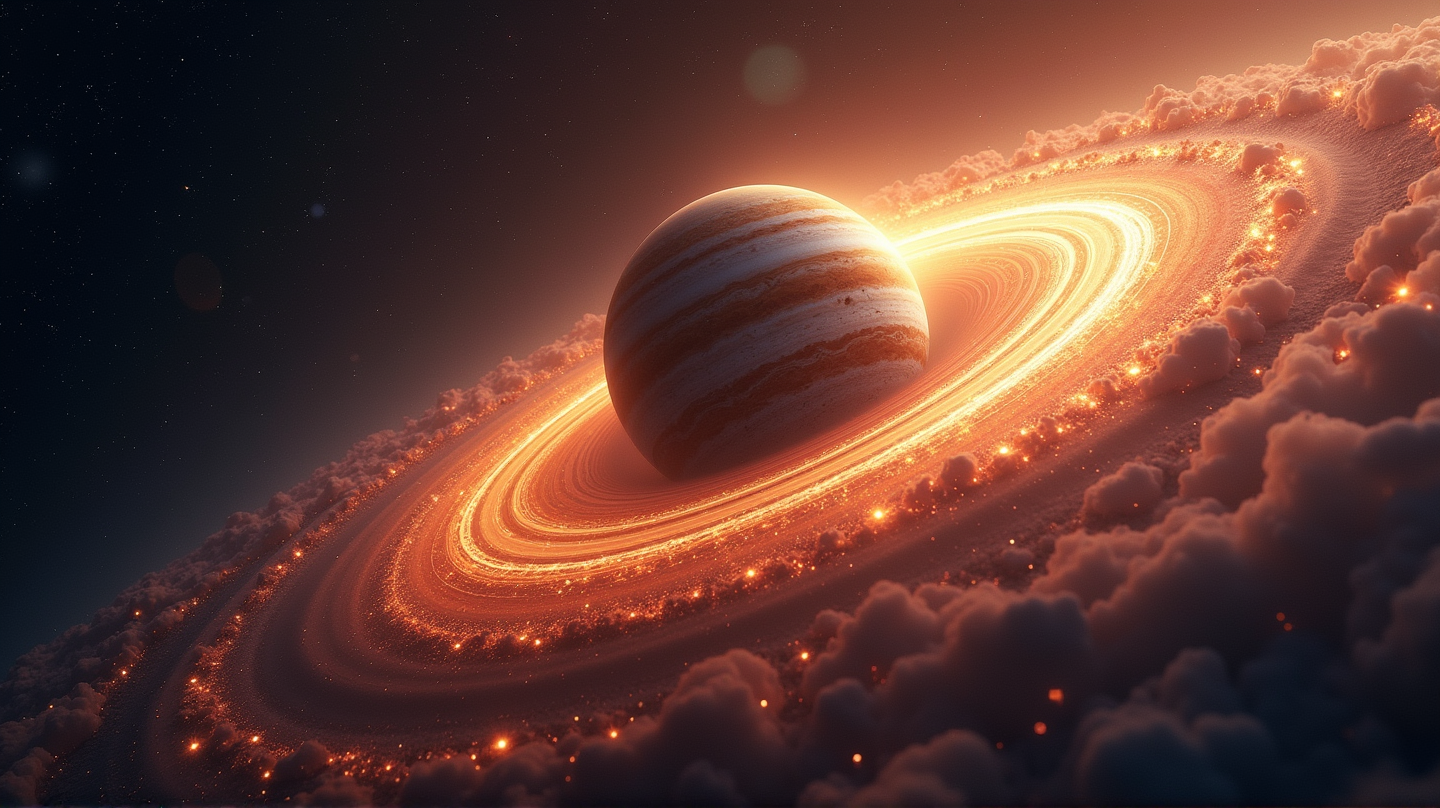Jupiter's Crucial Role in Shaping Earth's Orbit Uncovered
The formation of Jupiter might hold the secret to Earth's current orbital stability. Discover the cosmic dynamics involved.

In a groundbreaking study published in Science Advances, a team of researchers have unraveled the mysterious processes involved in the solar system’s formation, pinpointing Jupiter’s pivotal role in shaping Earth’s stable orbit. This study delves deep into the cosmic ballet that occurred billions of years ago, offering fresh insights into both our planetary neighborhood and potentially countless exoplanetary systems.
The Catalyst: Jupiter’s Rapid Growth
Utilizing sophisticated computer simulations, the researchers modeled the nascent days of Jupiter’s formation. This gas giant’s swift accumulation of mass fundamentally altered the protoplanetary disk, a cosmic nursery of gas and dust essential for crafting planetary bodies. As stated in Labroots, this profound shift significantly decreased the material available for the inner planets, while simultaneously fueling Jupiter’s own development. This revelation suggests a sequence of planetary births, where today’s familiar solar system wasn’t the first configuration.
A Cosmic Barrier Preserving Primordial Material
Rice University PhD student Baibhav Srivastava, the study’s lead author, highlights Jupiter’s early establishment of a vital gap within this disk. This gap served as a barrier, preserving the distinct chemical signatures between the inner and outer solar system material. This isotopic fingerprint, found in meteorites, offers a glimpse into the dynamic past, and into the resilient regions where new planetesimals could flourish.
Implications Beyond Our Solar Backyard
This research also hints at broader cosmic themes. The inward drift of gas and dust potentially plays a recurring role across the universe, impacting exoplanetary system architectures as well. The notion of short-period exoplanets being a universal phenomenon is tantalizing, suggesting that Jupiter-like giants elsewhere might wield similar influence over their respective domains.
The Future of Planetary Science
As this unveiling of Jupiter’s early life enriches our understanding, it also paves the way for future discoveries about solar system evolution. The cosmos, with its countless worlds, holds stories yet untold. What more will we unearth in the quest to comprehend our celestial origins? Only continued exploration and curiosity will tell.
Embark on your own journey of discovery by keeping a watchful gaze on the stars and perpetually asking the cosmic questions that challenge and inspire.
Stay curious, and keep exploring!
About the Author
Laurence Tognetti, MSc, is a seasoned science communicator and veteran passionate about unlocking the mysteries of the universe. His academic pursuits at Arizona State University’s School of Earth and Space Exploration were fueled by an insatiable curiosity about outer space.
Related Reads
- NASA’s PUNCH Mission: Revealing the Solar Wind in 3D
- The Cosmic Ballet of Ultra-hot Jupiters

